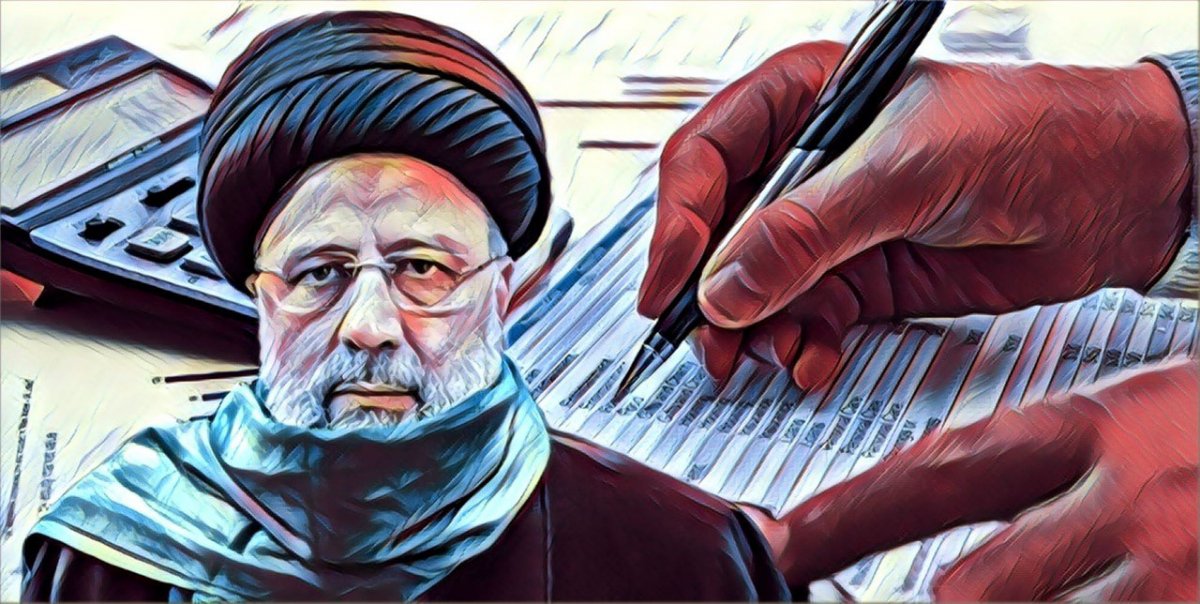How Raisi’s Hidden Tax Milks the People
How Raisi’s Hidden Tax Milks the People: According to Iran Gate, the increase in tax collection rates in the past two years has once again raised the debate over whether Iranians pay less tax compared to other countries. Media supporting Raisi and the thirteenth government have a clear answer to this question and claim that Iranians pay significantly less tax than other nations. However, the issue is that this claim is not true, and in fact, Iranian citizens pay one of the highest tax rates to the government in the form of hidden taxes.
It was last May when the heated debate between Mousa Ghaninejad and Ali Alizadeh once again brought topics like taxation to the forefront. The question was raised in society again: Do Iranians pay less tax to the Islamic Republic government, or is this claim false? Perhaps the shortest possible answer can be summed up in Mousa Ghaninejad’s concise response to this statement, which was the question: ‘So what happens to the oil money?’
However, the point is that the discussion is not limited to oil money. The Islamic Republic government, through a less known phenomenon, collects heavy taxes from the people. Many economists refer to this type of taxation as hidden tax. But what exactly is hidden tax, and what are its examples?
Iran Gate, in a two-part series, has addressed the types of hidden taxes and explained the ways they are collected by Raisi’s government. The present report, which is the first part of this series, explains the concept of hidden tax and covers two types of this kind of taxation.
What is Hidden Tax?
In developed countries, taxation is generally accepted as fees that citizens pay in exchange for government services. However, in these countries, governments are generally accountable to the people for how the tax revenue is spent. On the other hand, these governments generally do not have the right to encroach on public resources.
But this is not the case in Iran. Despite having unrestricted and infinite access to resources like oil and gas revenues and mines, the Islamic Republic still collects heavy taxes from the people. However, it has taken to collecting unobtrusive fees from the people, which can be referred to as hidden tax.
It might be said that six types of hidden taxes are collected by governments in Iran. Although these taxes have changed over different periods, evidence suggests that the volume of hidden taxes is at its highest level compared to governments before Ebrahim Raisi. These six types are inflationary tax, oil tax, communication tax, market tax, demographic tax, and tax on savings. Further explanations about each of these items are provided below.
Inflationary Tax
Economists believe that inflation is essentially silent theft by the government from ordinary people, especially the middle class. In other words, governments print money, which leads to a decrease in the value of the national currency, effectively emptying citizens’ pockets. However, since the wealthy become richer with increased inflation, they welcome this government policy.
The lower income deciles of society are not very sensitive to this phenomenon because they always have extremely low purchasing power. In fact, it can be said that the government, by increasing inflation, is reaching into the pockets of the middle class and stealing their assets to balance the budget deficit this way.
On the other hand, due to access to insider information, the government can engage in speculation in various markets, including the currency and gold markets. This phenomenon is also a result of increased inflation, providing a suitable environment for government speculation. In other words, with inflation, the government can not only cover its budget deficit but also potentially earn significant income from the markets. Although this method of hidden taxation is categorized differently, its root is exactly in the chronic inflation within the economy.
Therefore, it can be said that inflationary tax is a win-win deal for governments. However, what gradually and very quietly occurs is the erosion of the social capital of governance, as people will eventually realize that the government is stealing from their pockets.
Oil Tax
As mentioned earlier, governments in developed countries do not have unlimited access to public resources. However, in most oil-based economies, governments known as rentier states emerge, which have unconditional and unlimited access to resources. In other words, these types of governments can sell as much oil and gas as they see fit without needing permission from the people and without being accountable to anyone.
The only exception to this type of economy is the government of Norway, which is generally not allowed to withdraw from oil revenues and is required to invest any oil sold in a fund called the National Investment Fund for future generations.
But in Iran, this is not possible. The government sells oil and is not accountable to anyone. Dr. Ghaninejad’s golden phrase precisely points to this issue: ‘So what happens to the oil?’ In other words, by selling oil and gas indiscriminately, the government is taxing both the current and future generations of the country.
Because these resources do not belong to the government; they belong to each and every Iranian citizen. Yet here, too, the government, in a not-so-hidden and complex way, reaches into the pockets of future generations and Iranian citizens and collects heavy taxes. The next part of this series will explain the other four types of hidden taxes.
The 2023 Budget: Raisi Government’s New Masterpiece
Amongst Iran’s superrich are tax evaders too, and the government isn’t doing much about it
English
View this article in English

